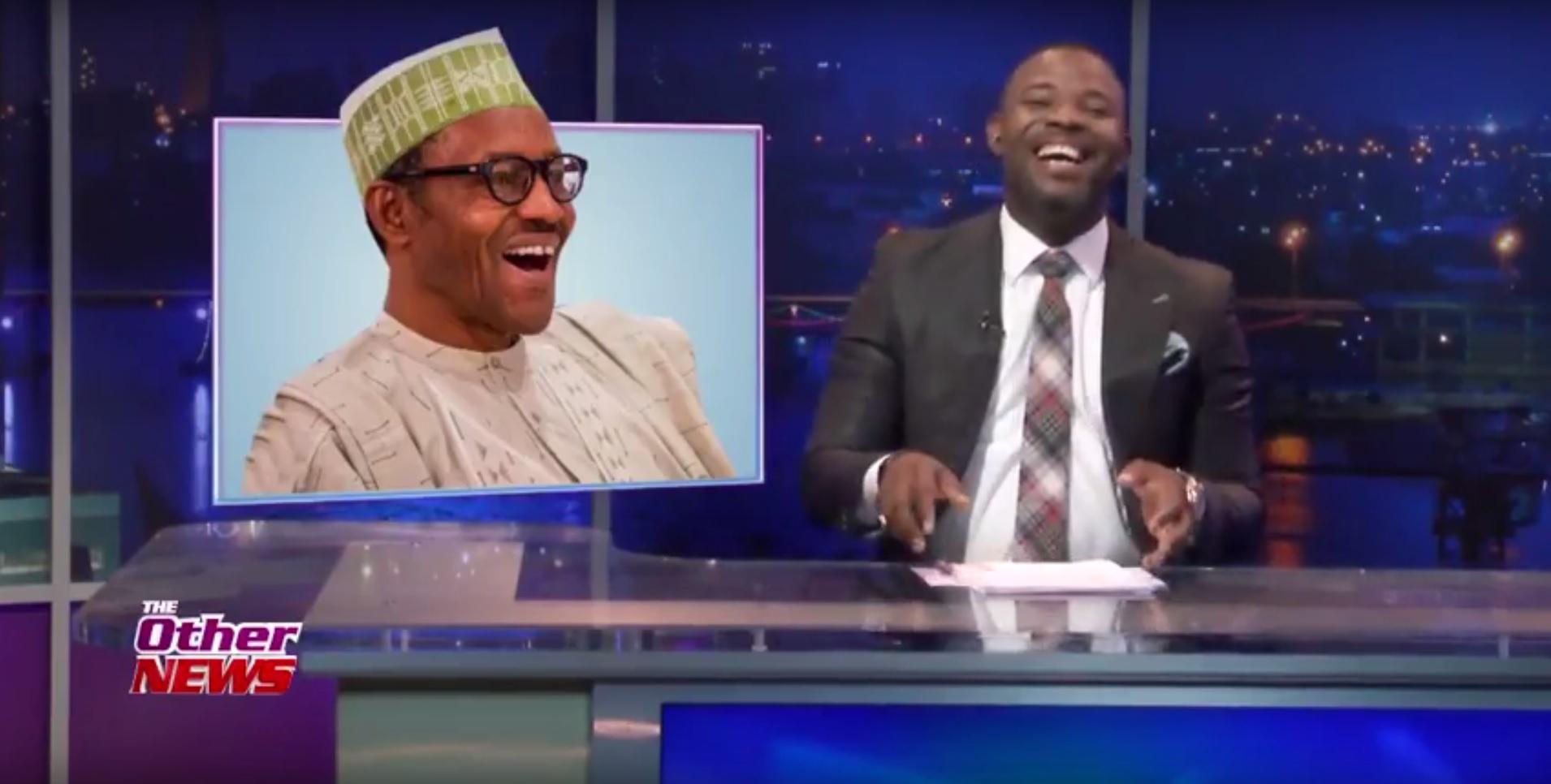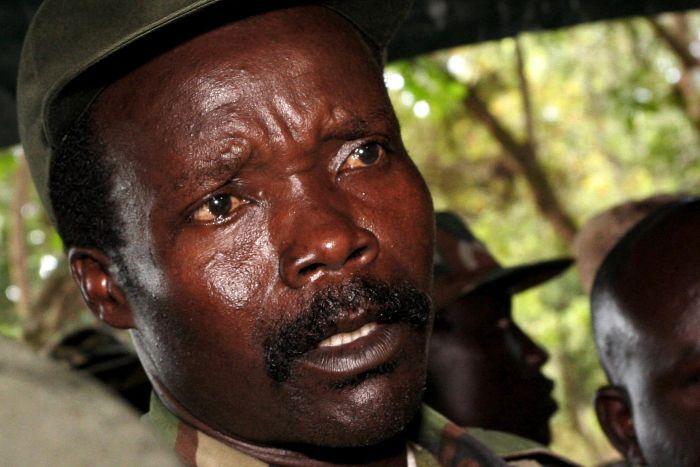Nigerians are making fun of their leaders, but to what end?

Nigeria’s satire scene is growing. But most networks are afraid of angering those in power by giving it a bigger platform.

This July, as heavy rains engulfed the streets, Lagos residents turning on their televisions were greeted with what looked like a standard news show detailing the crisis in Nigeria.
“The weekend rains brought serious flooding to parts of Lagos Mainland,” intoned the anchor. “Uber responded by announcing a new service,” he continued as an image of a woman in the canoe appeared over his shoulder. The caption read: “Uber Canoe Coming Soon”.
This was no ordinary news programme, however. It was The Other News, a weekly satirical show hosted by Nigerian comedian Okey Bakassi. Following a similar style and format to The Daily News with Trevor Noah in the US, The Other News covers domestic and international affairs in a satirical way. Since its July debut, the show’s audience has risen steadily, guaranteeing it a second season.
The success of The Other Show demonstrates the demand for home-grown satire in Nigeria. More people are tuning in to watch programmes such as Bakassi’s or turning to YouTube to watch shows such as Adeola’s Show (previously Keeping It Real), which received over 90,000 views per episode in its former incarnation.
This growing popularity even inspired a two-day Satire Festival last month. Hosted in Abuja, the event combined panel discussions with performances that, amongst many other things, included an irreverent “roast” of the president and a cheeky awards ceremony for Nigeria’s worst-performing governor.
Nigeria has a history of artistes using creative methods to question power. Afrobeat legend Fela Kuti notoriously lampooned the military government in his music. Lemi Ghariokwu, the cartoonist who created Fela’s album sleeves, did the same through art. Meanwhile, Chinua Achebe and Wole Soyinka both employed satire in their literature.
Many critics of the government are now employing to similar methods, albeit in some different forms, today.
“Satire [acts] like a mirror just showing you back yourself, without speaking at you and telling you what you’re doing wrong,” says Yemi Adesanya, who co-founded The Nigerian Satire Festival along with Ose Anenih.
For cartoonist Mike Asukwo, all figures in power are fair game when it comes to poking fun. For the past 12 years, he has used art to critique countless politicians.
“When it comes to political figures, I try to make sure that I don’t create no-go areas,” he says. “If you’re out there and you call yourself a public servant, just be sure that one way or another you’re going to appear in my cartoons.”

Mike Asukwo’s cartoon pokes fun at President Buhari’s economic policy.
This approach is not necessarily easy, however. Nigeria ranks 122 out of 180 countries on press freedoms and criticising powerful people comes with real risks. This was a concern amongst the festival organisers, which is why they chose to open it on 16 November, the UN’s International Day for Tolerance.
“Satire when you’re at the receiving end of it isn’t always funny, and we accept that fact,” says Anenih.
For many of Nigeria’s satirists, criticising those in power also comes with more indirect difficulties today.
“The problem is that politicians and their friends control all the platforms that could support shows,” notes Rudolf Okonkwo, host of Dr Damages, which is currently broadcast on YouTube where episodes receive tens of thousands of views.
He says that he has approached Nigerian networks about running his satirical show, but they have been concerned about the repercussions. “They asked that I tone it down. The people who run those platforms fear that the politicians would not like it,” he said by email.
Satirical blogger Okechukwu Ofili echoes this and goes further in suggesting that those in authority are able to inhibit criticism in a variety of ways through their networks of power.
He says that “big radio stations are dependent on the government”. Meanwhile, he adds that musicians are also indebted to the state by virtue of the fact that they are often funded by corporations, which rely on the government for contracts and favours in turn.
“Fela was able to make fun of government because he wasn’t dependent on them,” he says.
Satire beyond laughter
Nigeria’s satirists are nonetheless battling through the difficulties to get heard. However, here as elsewhere in the world, there is an age-old question over whether satire can lead to genuine change or whether it simply acts as a safety valve for people’s frustrations. This certainly divides observers in Nigeria.
According to arts and culture critic Oris Aigbokhaevbolo, the Abuja satire festival was commendable but unlikely to make much difference. He suggests that the elites who really ought to hear the critiques would stay away, but might send their children instead.
“The kids will have a good time and then it’s the reset button for everyone by dawn,” he says. “[Attendees] will laugh and put off protesting for another day. Not that anyone can blame them.”
Satirist Elnathan John is similarly cautious about the role of satire in Nigeria. In a tweet, he commented, “Nigerians don’t want any real satire. They’d burn down the station. They want weak impotent comedy they can giggle at.”
However, as satire grows in popularity in Nigeria, some disagree. They warn against dismissing this comedic, smart and playful approach to registering dissatisfaction too soon.
“The only way we can make people change is to show them what is wrong, what is not working, or what is absurd,” says Adesanya.






